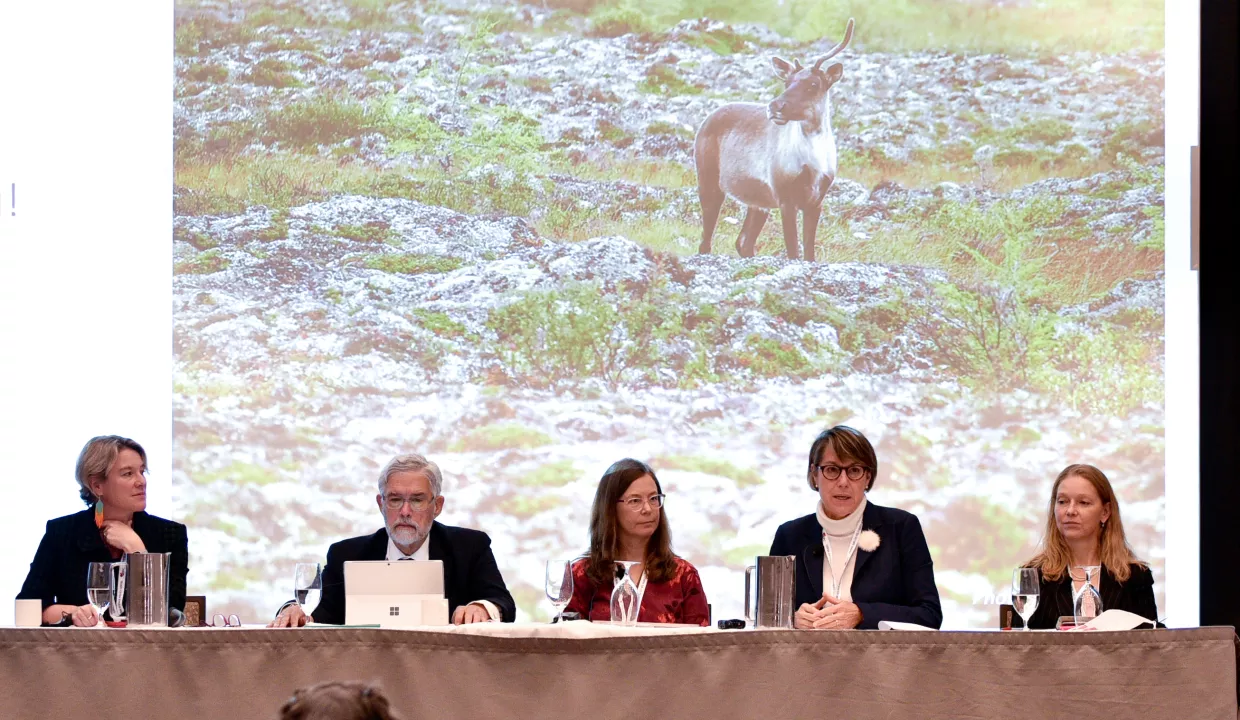
In Canada, approximately 40 percent of the land is underlain by permafrost—the most of any country after Russia. While the issue of permafrost thaw remains underappreciated at the international level, its impacts are already disrupting life in Canada’s northern communities, with disproportionate effects on Indigenous peoples. Now, the global community is looking to Canadian scientists and researchers for guidance on how to address one of the world’s most vulnerable carbon sources.
In November 2022, members of the Arctic Initiative traveled to the Canadian Science Policy Conference (CSPC) in Ottawa to introduce Permafrost Pathways to the Canadian research and policy communities. Through participation and meetings with key stakeholders, the team used the opportunity to seek guidance on how best to engage with Canadian scientists, decisionmakers, and First Nations, Inuit, and Métis (FNIM) communities as the project moves forward.
The Arctic Initiative hosted a Permafrost Pathways panel, moderated by Senior Fellow Jennifer Spence, as an opportunity for Canadian researchers, policymakers, and Arctic residents to exchange insights and examine opportunities for collaboration. Panelists included Raylene Mitchell, Engineer at Yukon University’s Northern Energy Innovation; Janet King, Chair of the Board of Directors of the NSERC Permafrost Partnership Network for Canada; Elyn Humphreys, Professor in the Department of Geography & Environmental Studies at Carleton University; Sarah Kalhok Bourque, Director of the Northern Science and Contaminants Research with Crown-Indigenous Relations and Northern Affairs Canada; and John Holdren, Arctic Initiative Co-Director.
CSPC’s CEO Mehrdad Hariri interviewed Arctic Initiative Co-Director John Holdren about the local and global hazards of permafrost thaw.
The panel emphasized the need for international collaboration to effectively address the nature of the issue. “Achieving the Permafrost Pathways project goals will require extensive interaction between researchers, policymakers and activists, Indigenous, regional and national leaders across the Arctic. To state the obvious, we need more organizational collaborations to address complex issues, and denser and more effective partnerships among all of the participants,” said Holdren.
The session at CSPC was recognized as a success in terms of building upon the relationships of scientists and policymakers within the permafrost space and sharing insights into the efforts to address the global issue. “The issues related to climate change are unconstrained by national boundaries,” said Spence. “Canadians, Americans, and people from all over the world will have to look at these issues in a multidisciplinary way.”
Varvares, Tessa. “Strengthening U.S.-Canadian Collaboration on Permafrost Thaw.” Belfer Center for Science and International Affairs, Harvard Kennedy School, September 25, 2023
